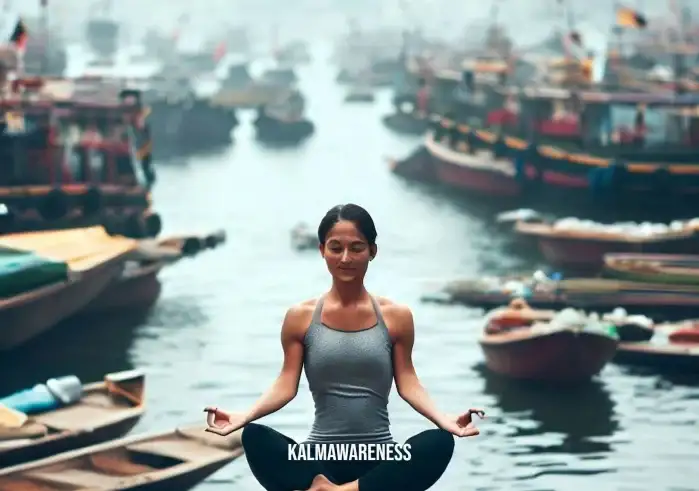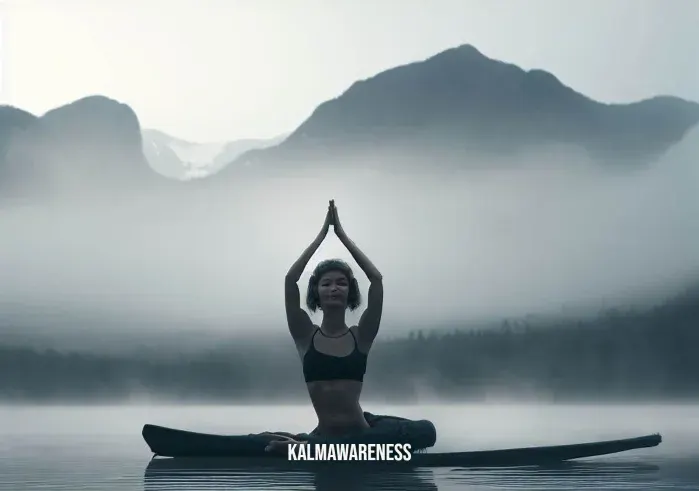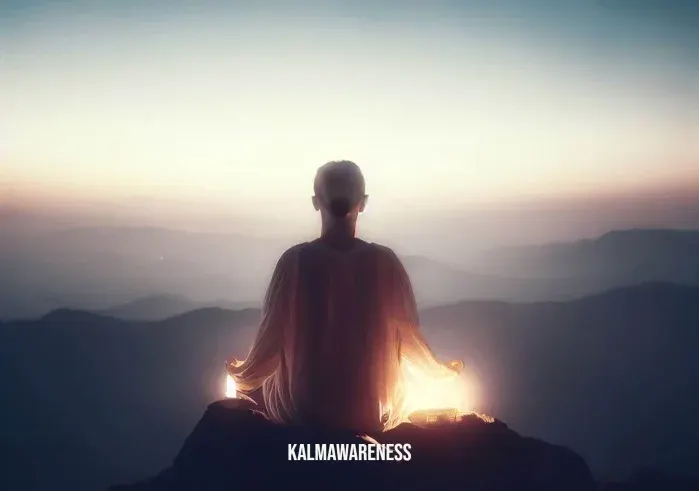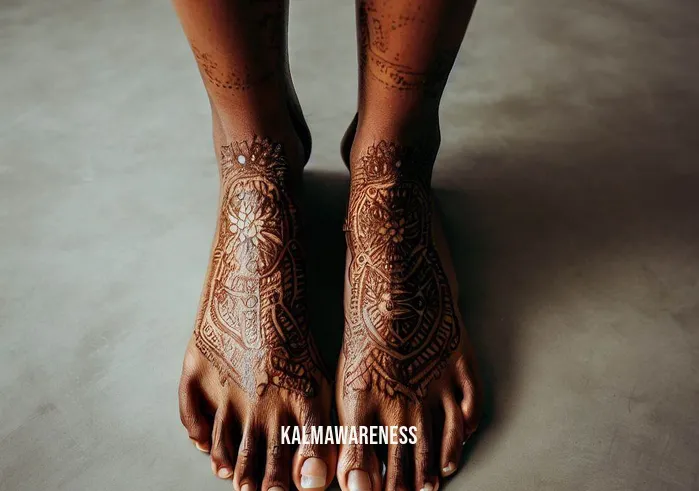Exploring the Half Boat Yoga Pose
- Pose Name: Half Boat Yoga Pose
- Original Name: Ardha Navasana
- Difficulty Level: Intermediate
- Pose Category: Core Strengthening
In the realm of yoga, there exists a multitude of postures, each offering unique benefits and challenges. Among them, the Half Boat Yoga Pose, also known as Ardha Navasana, stands as a potent pose for core strengthening and balance.
Exercise Duration | Exact Number of Time
- Duration: Beginners: Start by holding the pose for 10-15 seconds and gradually extend the time as you build strength. Advanced practitioners can aim to hold the pose for 30-60 seconds.
Embracing the Half Boat Yoga Pose
As you embark on this yoga journey, let us delve into the intricacies of the Half Boat Yoga Pose. With your mind and body aligned, let the waters of tranquility guide you as you embark on this transformative practice.
Step-by-Step Guide:
- Preparation: Begin in a seated position with your legs extended in front of you and your spine erect. Place your hands on the ground slightly behind your hips for support.
- Bend Your Knees: Gently bend your knees, bringing them closer to your chest, while keeping your feet grounded on the floor. Feel your core engaging as you establish a stable foundation.
- Lift Your Legs: As you find your balance, lift your feet off the ground, allowing your shins to become parallel to the floor. Find steadiness in your sitting bones and broaden your collarbones.
- Extend Your Arms: Gradually extend your arms forward, reaching them alongside your legs. Keep your palms facing down and your fingers active.
- Find Your Balance: Shift your weight back slightly and lift your chest. Create a “V” shape with your torso and thighs, finding balance on your sitting bones. Maintain an elongated spine throughout the pose.
- Lengthen Your Legs: If you feel stable, slowly straighten your legs to form a 45-degree angle with the floor. Flex your feet, activating the muscles in your legs.
- Engage Your Core: Draw your navel in towards your spine, activating your core muscles. Feel the power emanating from your center as you maintain this half boat position.
- Breath with Ease: Take deep breaths in and out, allowing your breath to flow effortlessly. Embrace the serenity of the present moment and let go of any tensions in your body.
- Modifications: If you encounter challenges in keeping your legs straight, feel free to keep a slight bend in your knees. Focus on maintaining a strong and stable core.
“As you embrace the Half Boat Yoga Pose, find your inner strength reflected in the calm waters of your being.”

Unveiling the Benefits of Half Boat Yoga Pose
After mastering the art of Ardha Navasana in the previous section, let us now delve into the myriad of benefits that the Half Boat Yoga Pose has to offer. This empowering pose goes beyond just physical gains; it embraces the holistic well-being of the practitioner, nurturing the mind, body, and spirit.
The Reaping Rewards
Physical Benefits:
- Core Strengthening: As you balance on your sitting bones and lift your legs, the core muscles, including the rectus abdominis, obliques, and transverse abdominis, are actively engaged. Regular practice of Half Boat Yoga Pose helps tone and strengthen the entire abdominal region.
- Hip Flexors and Hamstring Flexibility: The pose involves stretching and lengthening the hip flexors and hamstrings, improving their flexibility and range of motion.
- Spinal Health: Ardha Navasana encourages an elongated spine, promoting good posture and alleviating tension in the back.
- Improved Digestion: The compression of the abdominal organs in this pose aids digestion and stimulates the digestive fire (agni).
Mental and Emotional Benefits:
- Enhanced Focus and Concentration: The balancing nature of the pose requires steady focus, fostering mental clarity and concentration.
- Stress Reduction: Engaging in the Half Boat Yoga Pose helps release stress and tension, promoting a sense of calm and tranquility.
- Boosted Self-Confidence: Mastering this challenging pose instills a sense of achievement and confidence in one’s abilities.
- Inner Strength: As you hold the pose with determination, you cultivate inner strength and resilience, both on and off the mat.
Who Cannot Do the Pose?
While the Half Boat Yoga Pose offers numerous benefits, it may not be suitable for everyone. Individuals with the following conditions or limitations are advised to avoid this pose:
- Lower Back Issues: If you have a history of lower back pain or injury, it’s best to avoid or modify this pose to prevent any strain on the lumbar spine.
- Neck Problems: Individuals with neck issues should exercise caution while practicing Half Boat Yoga Pose, as lifting the head and chest can exacerbate neck discomfort.
- Pregnancy: Pregnant individuals should avoid this pose, especially during the second and third trimesters, as it places pressure on the abdomen.
Variations for Different Levels of Experience
1. Modified Half Boat Pose:
For beginners or those with limited core strength, you can perform a modified version of the pose by keeping your hands on the ground behind your hips for additional support. Focus on engaging your core and lifting one foot off the floor at a time.
2. Half Boat Pose with Toe Tap:
For intermediate practitioners looking to intensify the pose, try extending your arms forward and tapping your toes on the ground without fully resting them. Alternate between tapping each foot for an added challenge.
3. Full Half Boat Pose:
Advanced yogis can strive for the full expression of Ardha Navasana by extending both legs to form a 45-degree angle with the floor. Keep your arms parallel to the floor and maintain a straight spine throughout the pose.
Embrace the Journey
Incorporating the Half Boat Yoga Pose into your practice can pave the way for a deeper connection between mind and body. As you reap the rewards of this empowering pose, remember to listen to your body and honor its limitations. Explore the various variations to tailor the pose to your level of experience and gradually progress as you build strength and flexibility.

Unraveling the Half Boat Yoga Pose: A Journey Through History
As we delve deeper into the world of Ardha Navasana, it is essential to understand the rich history and spiritual significance behind this empowering pose. Embark on a voyage through time and discover the ancient roots that have shaped the practice of Half Boat Yoga Pose.
A Glimpse Into the Past
The origins of the Half Boat Yoga Pose can be traced back to ancient yogic texts and scriptures, where it was referred to as “Ardha Navasana” in Sanskrit. In these ancient texts, yoga was considered not just a physical practice but a means to attain spiritual enlightenment and self-realization.
Unveiling the Spiritual Significance
In yogic philosophy, each pose carries a deeper spiritual meaning, transcending the physical realm. Ardha Navasana is no exception, and it symbolizes various aspects of the human journey towards inner awakening:
- Balance and Harmony: The act of balancing on the sitting bones represents the pursuit of harmony and balance in one’s life, both internally and externally.
- Letting Go of Ego: As we lift our legs and extend our arms, we are encouraged to release our ego and connect with our higher self, embracing humility and surrender.
- Navel Chakra Activation: Ardha Navasana stimulates the Manipura chakra, located at the navel region, which is associated with personal power and self-confidence.
Tips for Embracing the Pose
To make the most of your Half Boat Yoga Pose practice, consider the following tips:
- Focus on Alignment: Ensure that your spine remains straight and elongated throughout the pose, avoiding any rounding of the back.
- Breathe Mindfully: Pay attention to your breath and maintain a steady, even breath throughout the pose. This helps calm the mind and enhances your ability to hold the pose.
- Engage Your Core Mindfully: While engaging the core is essential in this pose, avoid excessive gripping or tension. Find a balance between strength and ease.
Common Mistakes to Avoid
As with any yoga pose, certain mistakes can hinder the full benefits of Ardha Navasana. Watch out for the following errors:
- Overarching the Lower Back: Avoid excessive arching of the lower back, which can strain the lumbar region.
- Collapsing the Chest: Keep your chest lifted and open to facilitate a better flow of breath.
- Straining the Neck: Refrain from tensing the neck; instead, keep it relaxed and in line with the spine.
Modifications for Safety and Comfort
For practitioners with injuries or limited flexibility, here are some helpful modifications:
- Use Props: Place a yoga block under your hands for additional support while performing the pose.
- Bent Knees Variation: If extending your legs fully is challenging, keep your knees bent and focus on engaging your core.
- Wall Support: Practice Ardha Navasana with your back against a wall for added stability.
Embracing Complementary Poses
To enhance your yoga practice and create a harmonious flow, consider incorporating the following poses that complement Half Boat Yoga Pose:
- Boat Pose (Navasana): This full version of the pose involves lifting both legs and arms simultaneously, offering a deeper core challenge.
- Low Boat Pose (Ardha Navasana Variation): This variation involves reclining back and lifting the legs off the floor, providing a gentle yet effective core workout.
- Bridge Pose (Setu Bandhasana): Bridge Pose helps open the chest and stretch the hip flexors, complementing the hip-opening aspect of Ardha Navasana.
Embrace the Sacred Practice
As we journey through the history, spiritual significance, and practical aspects of the Half Boat Yoga Pose, let us remember that yoga is a sacred practice that transcends physical boundaries. With every Ardha Navasana, we embark on a voyage of self-discovery, tapping into the timeless wisdom of the ancient yogis.





